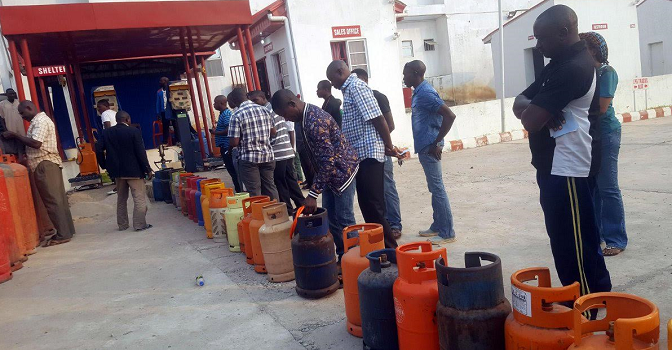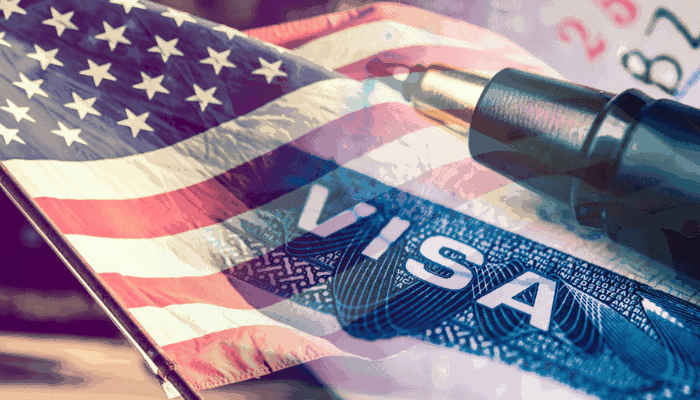
US Restricts Visa Interviews to Applicants’ Country of Nationality or Residence
- Foreign News
- 08.09.2025
- No Comment
- 163
US Restricts Visa Interviews to Applicants’ Country of Nationality or Residence
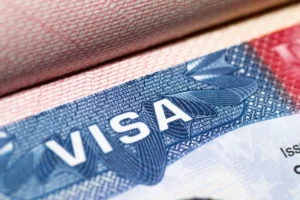
how applicants for non-immigrant visas (NIVs) schedule their interview appointments.
Effective immediately, individuals are required to attend interviews at U.S. embassies or consulates located
in their country of nationality or country of residence.The policy, announced on September 6, 2025, is part of the U.S. government’s effort to
tighten visa application processes, reduce fraudulent attempts, and streamline operations across embassies worldwide.
Key Highlights of the New Visa Interview Policy
- Applicants must schedule interviews only in their country of nationality or legal residence.
- Those applying outside their residence may face longer wait times and a higher risk of rejection.
- Visa application fees remain non-refundable and non-transferable even if denied.
- Existing appointments will not generally be cancelled.
- Exemptions apply to diplomatic, NATO, and UN-related visas, as well as humanitarian cases.
“Applicants for U.S. nonimmigrant visas should schedule their visa interview appointments at the U.S. Embassy
or Consulate in their country of nationality or residence. Nationals of countries where the U.S. government
is not conducting routine nonimmigrant visa operations must apply at the designated embassy or consulate,
unless their residence is elsewhere.”
This directive is aimed at ensuring applicants can demonstrate strong ties to their country of residence or nationality,
which is a key factor in visa eligibility assessments.
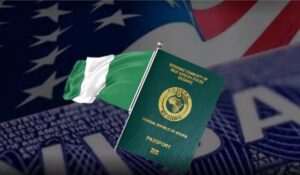
the challenges are clear:
- Longer Wait Times: Appointment slots may take significantly longer to secure.
- Higher Risk of Rejection: Officers may question the applicant’s ties to their country.
- Non-refundable Fees: Visa application fees will be lost if the application is denied.
The U.S. government emphasized that this measure is not intended to inconvenience genuine travelers but
to maintain the integrity of the system and prioritize those applying through the proper channels.
Related News:
Nigerian U.S. Visa Holders Quietly Blocked from Entry as Investigations Unfold
- Applicants for A, G, C-2, C-3, and NATO visas.
- Diplomatic-type or official-type visas (regardless of classification).
- Applicants traveling under the UN Headquarters Agreement.
- Rare humanitarian or medical emergencies.
- Special foreign policy circumstances approved by the State Department.
faced long appointment backlogs at the U.S. Embassy in Abuja and the U.S. Consulate in
Lagos.Previously, many Nigerians opted to apply for U.S. visas in neighboring countries such as Ghana or Benin Republic
in hopes of securing faster interview dates. Under the new policy, such strategies are no longer viable,
and Nigerian applicants must strictly apply in their country of residence — either Abuja or Lagos.
This is likely to increase demand for appointment slots in Nigeria and could further lengthen the waiting period
unless the U.S. government expands capacity at its Nigerian missions.
visa regulations became more restrictive, with added scrutiny for applicants from certain countries.The current administration has largely maintained a cautious approach to immigration,
emphasizing security, efficiency, and fraud prevention.
This new directive builds on that framework by limiting where interviews can be conducted.
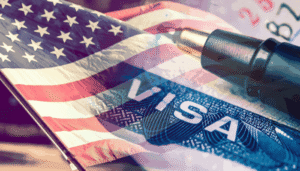
- Fraud Prevention: Applying outside one’s country of residence has historically been linked to fraudulent cases.
- Operational Efficiency: Embassies can better manage resources by focusing on local residents.
- Stronger Verification: Applicants are more likely to provide verifiable evidence of ties in their home country.
- Reducing Forum Shopping: Preventing applicants from “shopping” for faster appointments abroad.
In essence, the move is meant to safeguard the U.S. immigration system while reducing unnecessary administrative burdens.
- Confirm Your Residence: Ensure that your legal residency is documented before scheduling.
- Schedule Locally: Book appointments only in your country of nationality or residence.
- Prepare for Delays: Anticipate longer waiting times and plan accordingly.
- Check Exemptions: If applying for diplomatic or emergency travel, confirm exemption eligibility.
applicants must navigate the process. By restricting interviews to an applicant’s country of nationality
or residence, the U.S. government aims to ensure fairness, reduce fraud, and streamline embassy operations.For Nigerian travelers, the rule will require stricter compliance, with all applications now routed through Abuja
or Lagos. While this may cause longer wait times in the short term, it underscores the U.S. government’s
commitment to maintaining integrity in its visa system.
Travelers are advised to plan early, prepare thoroughly, and apply within the guidelines to avoid delays
or financial loss from non-refundable fees.


